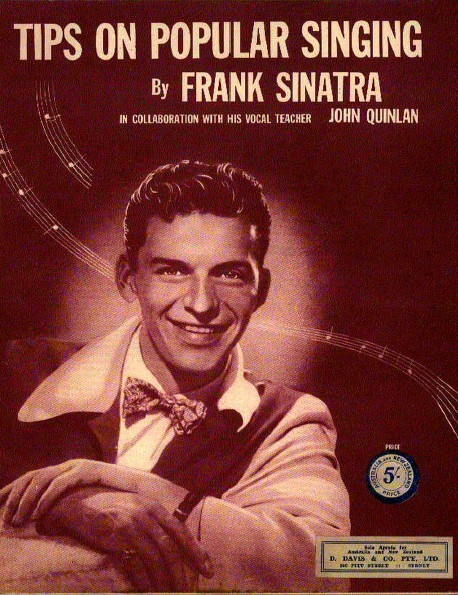Frank Sinatra, a name synonymous with vocal mastery, often sparks curiosity about his vocal training journey. Did years of rigorous exercises shape his iconic voice? This article delves into Sinatra’s singing techniques, drawing insights from his co-authored book, “Tips on Popular Singing,” and exploring the evolution of vocal coaching methods. We’ll examine how Sinatra’s approach differed from contemporary techniques and debunk common misconceptions surrounding vocal training.
Sinatra’s Early Training and “Tips on Popular Singing”
Contrary to popular belief, Sinatra’s vocal training wasn’t a decades-long endeavor. He took lessons from voice coach John Quinlan early in his career, a collaboration that led to their 1941 book, “Tips on Popular Singing.” This guide offered a practical approach to singing, emphasizing simple exercises and fundamental techniques. Interestingly, Sinatra’s training predates the popular “sing as you speak” method, raising questions about the prevailing vocal philosophies of the time.
 Sinatra Singing Book.jpg
Sinatra Singing Book.jpg
“Tips on Popular Singing” challenges the notion that extensive vocal training is essential for success. The book advocates for a more streamlined approach, focusing on scales, vowel pronunciation, breath control, and maintaining consistent “placement” while singing. These foundational elements, Sinatra argued, were more crucial than years of complex exercises.
Comparing Sinatra’s Method to Modern Techniques
Sinatra’s emphasis on simplicity contrasts with some contemporary vocal coaching styles often seen on platforms like YouTube. Many modern coaches promote intricate exercises without always explaining their purpose or demonstrating their effectiveness. These exercises can sometimes lead to unnatural singing habits, such as excessive nasality.
Sinatra’s approach, rooted in mastering fundamental techniques and consistent practice, offers a different perspective. He prioritized singing songs early in the learning process, believing that practical application was key to developing vocal skills.
The Importance of Fundamentals and Individualized Learning
While Sinatra’s book lacks in-depth discussion of muscle memory and physiology, understandable given the scientific understanding of the time, its core message remains relevant: mastering fundamental techniques through consistent practice and individualized guidance is crucial.
Modern vocal coaches can learn from Sinatra’s emphasis on foundational skills and tailoring instruction to individual needs. Aspiring singers should focus on understanding their vocal instrument, practicing consistently, and seeking guidance that prioritizes practical application and healthy singing habits.
Conclusion: Sinatra’s Enduring Legacy in Vocal Training
Frank Sinatra’s vocal journey offers valuable lessons for aspiring singers and vocal coaches alike. His emphasis on simplicity, foundational techniques, and consistent practice challenges common misconceptions about vocal training. While modern methods have evolved, Sinatra’s legacy reminds us of the enduring importance of mastering the basics and finding a personalized approach to singing. His journey demonstrates that vocal excellence can be achieved through focused practice and a deep understanding of one’s own voice, rather than relying solely on complex exercises.
